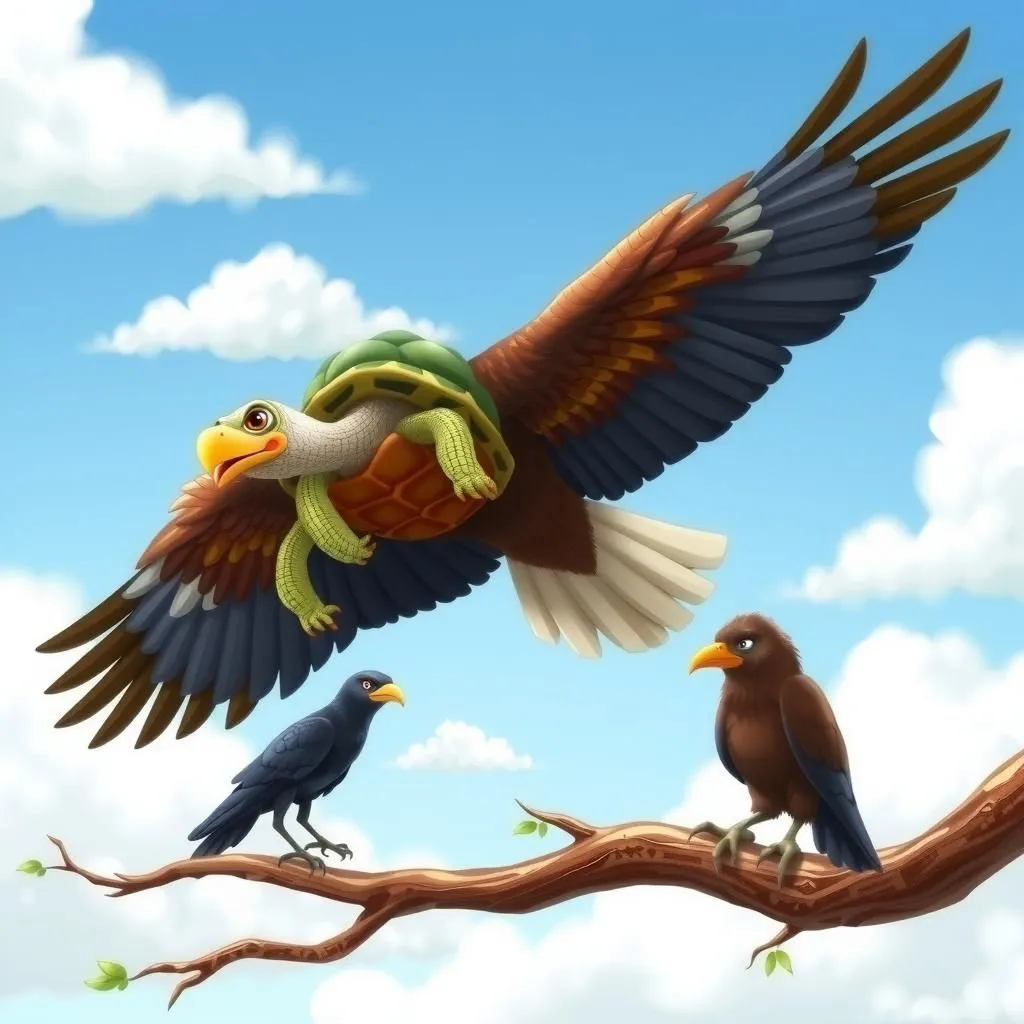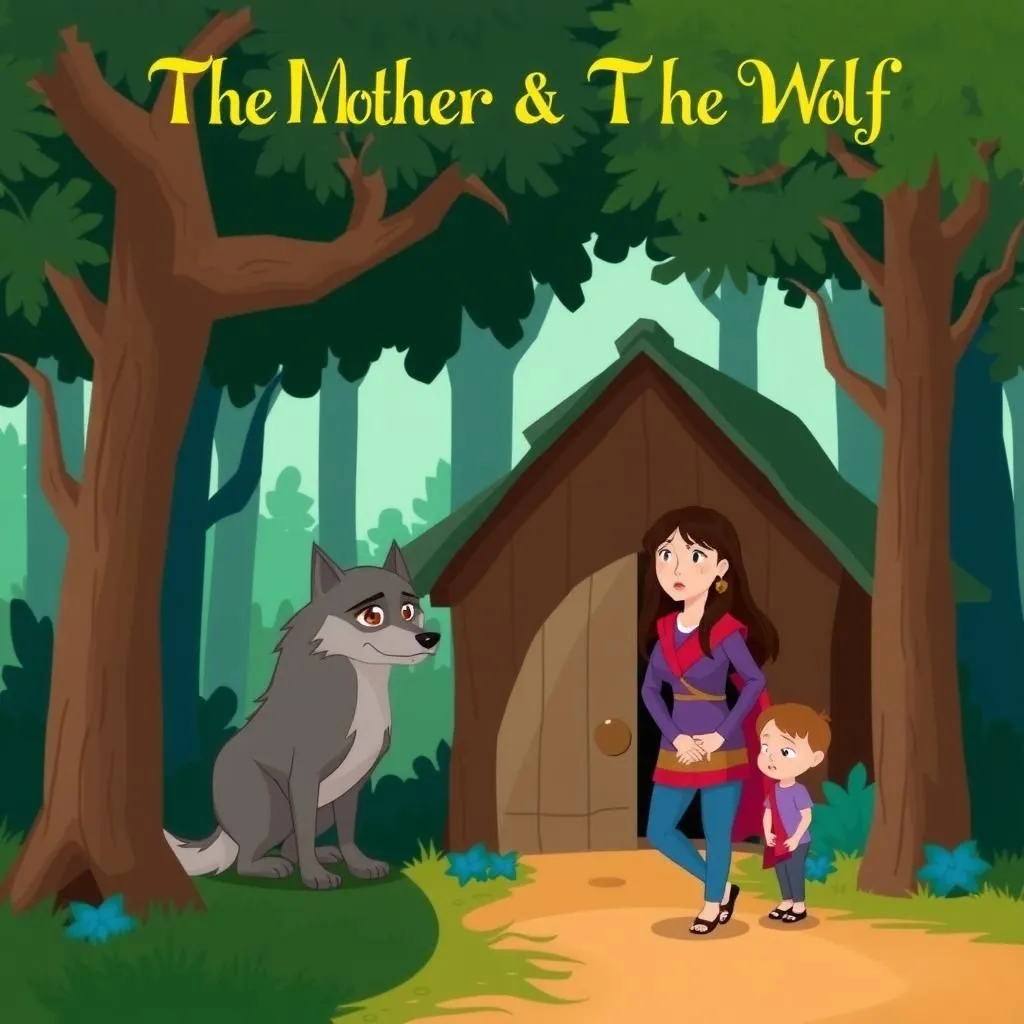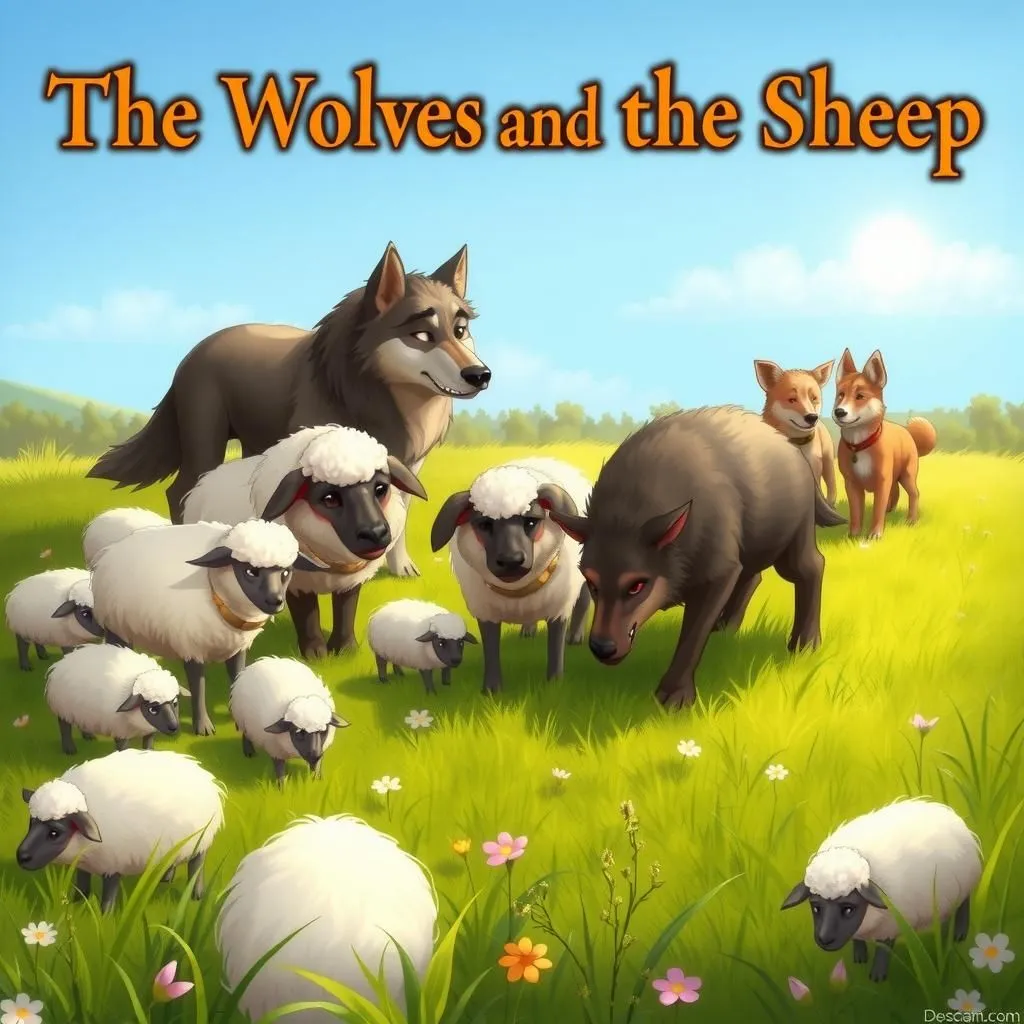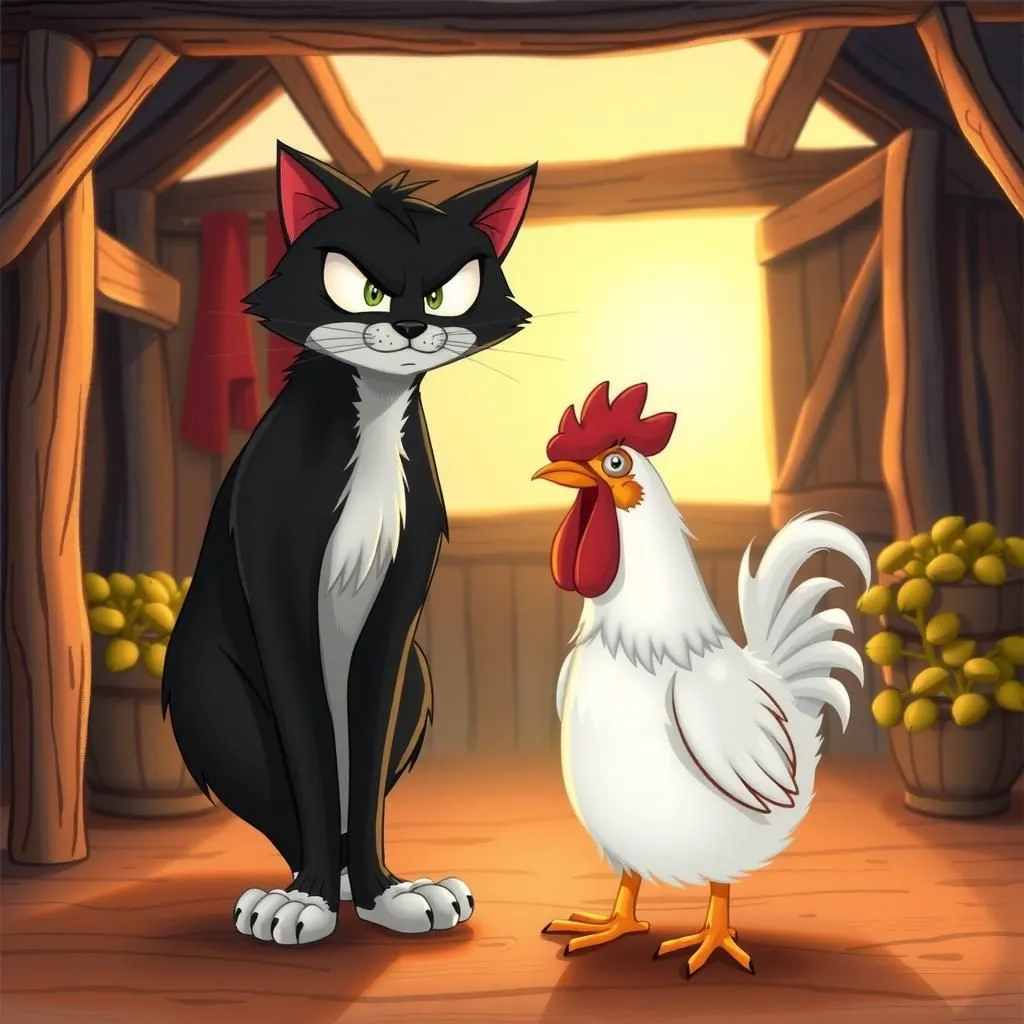
The Tortoise and the Birds
In "The Tortoise and the Birds," a simple short story with moral undertones, a Tortoise enlists an Eagle to carry him to a new home, promising a reward. However, when a Crow suggests the Tortoise would make a good meal, the Eagle, swayed by the idea, drops him on a rock, leading to his demise. This engaging moral tale serves as a cautionary reminder against trusting enemies for assistance, a common theme in famous moral stories and animal stories with moral lessons.


